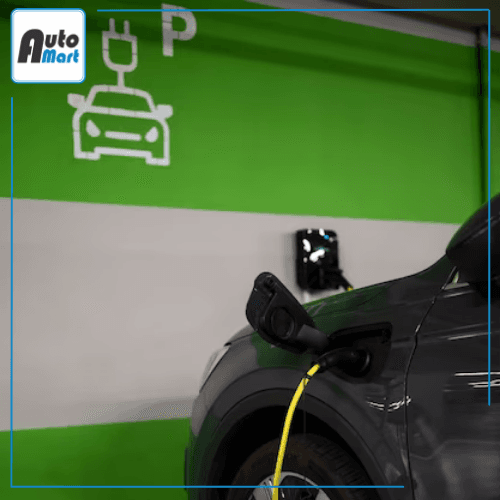As electric cars continue to surge in popularity, questions about their safety and security have emerged. One concern often raised is whether they are easier to hack compared to their conventional counterparts. Now, take a journey with us as we delve into this topic, focusing on the South African road landscape. By exploring the built-in security measures, advancements in automotive cybersecurity, and the commitment of manufacturers to protect their vehicles. Furthermore, we aim to shed light on the reality of these cars' vulnerability.
So, let's take a closer look at the security of electric cars and separate fact from fiction. If you're interested in owning a car, don't forget to search and find cars for sale on Auto Mart.
 Photo Source: Freepik
Photo Source: Freepik
Electric Car Security Measures:
Contrary to popular belief, electric cars are not inherently more vulnerable to hacking than traditional vehicles. In fact, they often come equipped with advanced security features that make them less susceptible to cyber threats. Manufacturers are aware of the importance of safeguarding their customers' privacy and safety, and they are continuously investing in robust security measures. Key security features of the cars include secure communication protocols, encrypted software updates, and enhanced authentication mechanisms. These measures, combined with the overall architecture of electric vehicles, create a solid foundation for protecting against potential cybersecurity breaches.
Advancements in Automotive Cybersecurity:
The automotive industry has been proactive in addressing the evolving challenges of cybersecurity. The car manufacturers, in collaboration with cybersecurity experts, are continuously working to identify and rectify potential vulnerabilities. Regular software updates and patches are released to address any emerging security issues. Additionally, manufacturers conduct rigorous testing, both in controlled environments and on the road, to ensure their vehicles meet the highest security standards. Through these proactive measures, the automotive industry is raising the bar for automotive cybersecurity, making electric vehicles safer and more secure with each passing year.
Manufacturer Commitment to Vehicle Security:
Leading electric vehicle manufacturers are acutely aware of the importance of prioritising vehicle security. They understand that trust and confidence in their products are essential for the widespread adoption of electric cars. Consequently, manufacturers are heavily investing in research and development to fortify the cybersecurity defenses of their vehicles. Collaborations with cybersecurity firms, bug bounty programs, and regular security audits are some of the strategies employed to identify and address potential vulnerabilities. Manufacturers are committed to staying one step ahead of hackers, ensuring that their customers can enjoy the benefits of these vehicles without compromising their safety and security.
 Photo by Kindel Media - From Pexels
Photo by Kindel Media - From Pexels
South African Road Perspective:
In the context of South Africa, battery electric vehicles are gaining traction at a steady pace. As more of these vehicles hit the roads, it is vital to address concerns about their vulnerability to hacking. The good news is that local electric automobile dealerships and manufacturers adhere to stringent security standards, ensuring that vehicles sold in the country are equipped with the latest security features. This commitment to cybersecurity extends to after-sales support as well, with regular updates and patches being made available to owners. Therefore, prospective electronic car owners in our country can rest assured that their vehicles are built to withstand potential hacking attempts, making them a secure and reliable choice for daily commuting.
 Photo Source: Freepik
Photo Source: Freepik
As the demand for electrically powered cars continues to rise, it is crucial to separate fact from fiction when it comes to the security of these vehicles. Electric automobiles are not easier to hack, thanks to the continuous advancements in automotive cybersecurity and the unwavering commitment of manufacturers to prioritise vehicle security. With each passing year, electric vehicles become safer, more secure, and less susceptible to cyber threats.
In conclusion, electric cars are equipped with robust security measures that make them as secure, if not more secure, than traditional vehicles. The myth that these types of cars are easier to hack is unfounded, as manufacturers invest heavily in automotive cybersecurity and collaborate with experts to fortify their vehicles' defenses. In South Africa, the commitment to vehicle security is strong, ensuring that electric motorcar owners can enjoy the benefits of this eco-friendly transportation option with peace of mind. So, if you're considering making the switch to an electric vehicle, rest assured that they are not easier to hack. Search and find cars for sale on Auto Mart to embark on a greener and secure driving experience.






